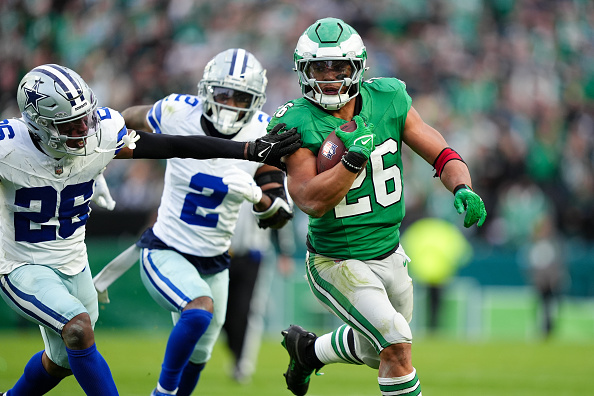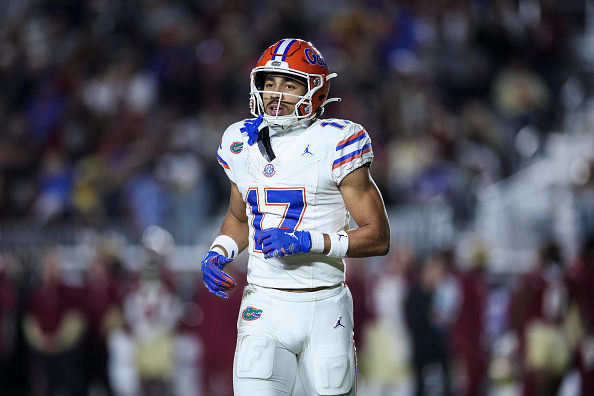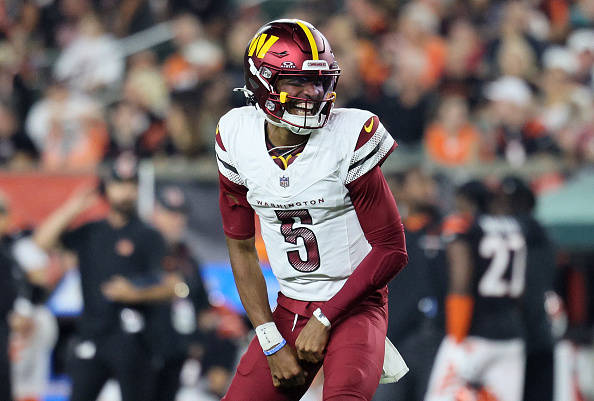Quarterback contract history is very clear if watched closely. Young franchise quarterbacks leapfrog to higher records consistently. The clear pattern established by glancing at the young franchise quarterback market is the importance of signing a young franchise quarterback early versus later.
(APY= Average Per Year)
Andrew Luck signed for $24.6 million (APY – NFL record)
Derek Carr signed for $25 million (APY – NFL record)
Matthew Stafford signed for $27 million (APY – NFL record)
Jimmy Garoppolo signed for $27.5 million (APY – NFL record)
Drew Brees signed for $25 million (APY – Older quarterback)
Kirk Cousins signed for $28 million (APY – NFL record)
Matt Ryan signed for $30 million (APY – NFL record)
Aaron Rodgers signed for $33.5 million (APY – NFL record)
Russell Wilson signed for $35 million (APY – NFL record)
Ben Roethlisberger signed for $34.million (APY – Older quarterback)
Carson Wentz signed for $32 million (APY – NFL record in guarantee at 107.9 million)
After glancing at the market above it is obvious that the Dallas Cowboys missed a window. The window to get aggressive about finishing quarterback Dak Prescott’s deal was before Carson Wentz’s extension, but Executive Vice President Stephen Jones elected to wait. Originally, Wentz was still nursing his injured back and the Eagles were still unsure about a long-term contract. Urgency on the biggest budgeted position, which is a majority of the time the quarterback position, should have been first and at minimum displayed.
Wentz’s back injury was projected to take three months to treat but he was still having back issues deep into month four. His back fracture was discovered mid-December. In mid-April, Wentz was still uncertain about his back and health, according to Charlotte Carroll With Sports Illustrated.
Even with Wentz’s obvious injury concerns, the Eagles’ Executive Vice President of Football Operations, Howie Roseman, displayed extreme public optimism on the 94WIP morning show. The Eagles were publicly showing faith and aggressively trying to finish a deal with their franchise quarterback. Executive Vice President Stephen Jones was the opposite of Howie Roseman. Jones was very passive in his approach to close out the Prescott contract negotiation.
Keep in mind that Wentz was still recovering when Jones made his team-friendly comment; on April 5, 2019, Jones stated on 103.3 ESPN in Dallas that Prescott’s next deal must be “team-friendly.”
“We’ve really never just gotten into the weeds in terms with Dak himself in terms of what his preference is,” said Jones. “I know he’s focused on winning and really getting as many players as he can out there working so we can have a great team next year. At the same time, I’m sure it’ll be coming. There will be a point in time where we all get around and say, ‘Hey, let’s get this done by a certain time and put it behind us.’”
In early April, Jones could have been sending proposals and accepting counter-proposals from Prescott’s agent. Instead, the passive-aggressive hardball strategy allowed Wentz to heal, and the Eagles pushed up the quarterback market more by signing Wentz to a new contract extension. Stephen Jones attempted a Hail Mary pass to try to get Prescott to do what record-breaking quarterbacks from Andrew Luck to Carson Wentz did not do.
By his own words, Jones didn’t vocalize the urgency with his quarterback. One would think that Prescott was the one who had the injury history, lower completion percentage, fewer yards, way less total touchdowns, more interceptions, lower QBR, and lower pass rating, but it was Wentz. With all those concerns about Wentz, Philly openly pushed to close out the Wentz contract and showed great optimism in their injury-prone QB, while Stephen Jones took a passive public negotiating tone.
Could Prescott’s agent be the secret villain who waited for the Wentz contract deal knowing Prescott has the leverage of a previous year sweep of the Philadelphia Eagles and a much better three-year production resume over Wentz? Yes, it is a possibility, but Jones’s own words makes that harder to believe. Overall, Jones has done a fantastic job of being the protector of the salary cap and budget master to the Cowboys, but even your best receivers drop an occasional ball.
The Wentz signing increased the quarterback market. With Wentz’s new extension averaging $32 million a year, there is no way Prescott’s agent takes a penny less unless the guarantee is much higher than $107.9 million, which is the new record set by the Wentz contract.
Nobody can be upset at Prescott for wanting more than what Wentz was paid while injury-prone, slow to heal, under in total touchdowns, less in QBR, less in passing rating, more in interceptions, less in yards, and less in comeback wins by a mile. There will be national media hype when Dak is enumerated, but if you read the details carefully and slowly, you will understand where to point the blame.






